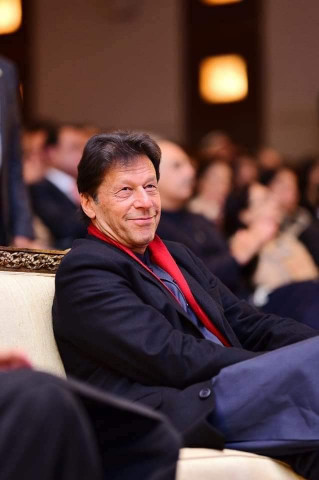PM Imran’s no to national reconciliation
The word reconciliation seems to be very notorious in Pakistan.

PM Imran Khan. PHOTO: PTI
The word reconciliation seems to be very notorious in Pakistan. The notoriety stemmed from the so-called National Reconciliation Ordinance (NRO) that the then military ruler, Pervez Musharraf, had promulgated in 2007 as part of a deal struck with Benazir Bhutto, the late PPP leader and a former prime minister. The NRO not only gave amnesty to the PPP leadership but also let thousands of others facing criminal and corruption cases off the hook.
Against this backdrop, whenever the word reconciliation comes, it is always linked with giving amnesty to political leaders facing corruption allegations. But the fact of the matter remains that Pakistan at the moment genuinely needs a reconciliation to deal with multiple challenges on internal and external fronts. Political differences are not something unusual in a country as politically divisive as Pakistan. But despite this divisiveness, in the past we found our political parties to be on the same page at least on the issues of national importance. The most recent example was how despite bitter rivalry, Prime Minister Nawaz Sharif invited then opposition leader Imran Khan at an All Parties Conference (APC) to discuss the aftermath of the Army Public School massacre in December 2014. Imran took a break from his dharna at D-chowk – which he had been staging for four months demanding Sharif’s resignation – to join other political leaders for discussing the national tragedy. That goes to show that our political class can come together on national issues. But unfortunately with Prime Minister Imran at the helm that approach has now been abandoned. After the Pulwama incident in February last year that led to tit-for-tat airstrikes by India and Pakistan, PM Imran turned down a suggestion for reaching out to the opposition on the brewing tensions with India. He even avoided a briefing given to parliamentary leaders by the military leadership on the post-Balakot situation. This clearly indicates that for the incumbent government doesn’t consider any difference between local political issues and the issues that are related to the country’s security and sovereignty.
With tensions continuing to soar, US expert on South Asian affairs Michael Kugalman, who is currently visiting Pakistan, told The Review in an interview on Saturday that there is a potential risk of a war between Pakistan and India in 2020. He thinks the current situation between the two nuclear-armed neighbours is worse than after the Pulwama attack. If his assessment is even half true, Pakistan should pull its socks up. But for this, PM Imran needs to think as the head of the state, and not as the head of the PTI. As PTI chairman, Imran has a different role but as Prime Minister of Pakistan he has far bigger responsibilities. It may have been in this context that the AJK PM had advised PM Imran to reach out to the opposition, but the advice seems to have been misunderstood as a call for seeking reprieve for opposition leaders.
Published in The Express Tribune, February 10th, 2020.
Like Opinion & Editorial on Facebook, follow @ETOpEd on Twitter to receive all updates on all our daily pieces.














COMMENTS
Comments are moderated and generally will be posted if they are on-topic and not abusive.
For more information, please see our Comments FAQ